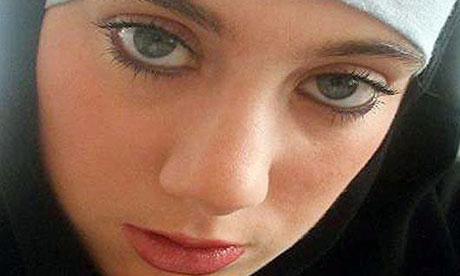PRESS RELEASE
For Immediate Distribution
30 September 2013 – Briefings in the Swedish Parliament on the Magnitsky
justice campaign have been cancelled as a result of the Swedish
Government’s refusal to provide a safe passage guarantee to William
Browder, the leader of the campaign.
The briefings were scheduled to take place in Stockholm last week.
Mr Browder’s campaign seeks to impose visa and financial sanctions in
Sweden and across the EU on Russian officials responsible for the
Magnitsky’s false arrest, torture and killing in Russian police custody.
Such sanctions have been already imposed by the United States Government
under the Sergei Magnitsky Rule of Law Accountability Act of 2012 passed by
the US Congress. Sergei Magnitsky was arrested after he blew the whistle on
the $230 million theft with the involvement of Russian officials. Some of
the same officials Sergei Magnitsky had implicated in his testimony, were
involved in his arrest.
The Russian authorities have responded angrily to Bill Browder’s campaign
for Magnitsky sanctions by convicting him in absentia along with late
Sergei Magnitsky himself in the first-ever posthumous trial in Russian
history. The Russian authorities have also opened a spurious criminal case
against Mr Browder alleging that he “stole” Gazprom shares and harmed
Russian economic security, justifying the case by a regulation that never
stipulated criminal liability and was repealed eight years ago.
Given the sentencing in absentia of Mr Browder to 9 years in prison by the
Russian authorities alongside with the posthumous prosecution of Sergei
Magnitsky, in advance of his visit to Sweden Mr Browder sought a formal
assurance that the Swedish government will not cooperate with Russian
requests to extradite Mr Browder on a Russian warrant and will not assist
with any other Russian requests.
In a surprising development, the Swedish Justice Ministry rejected Mr
Browder’s request and stated that “The Government or the Minister may not
intervene or give instructions in these cases.”
The Swedish refusal is in contrast to safe passage letters being issued by
the German government and the Dutch government earlier this year. It also
is contrary to the INTERPOL’s refusal to post worldwide search warrant
issued by the Russian Federation on 24 May 2013 for Mr Browder when
Interpol’s independent Commission for the Control of Files determined that
the Russian warrant should be refused because the case against Mr Browder
was of a “predominantly political nature”. Interpol’s General Secretariat
made a further announcement in July 2013 that Interpol cannot be used to
arrest Mr Browder.
Mr Browder was invited to come to Sweden by Swedish MP Mats Johansson. Mr
Johansson was also the author of a petition sent to the Swedish Prime
Minister on the Magnitsky Case in 2012
(http://russian-untouchables.com/rus/docs/D398.pdf) calling for sanctions
against the Russian officials responsible for Sergei Magnitsky’s death. The
petition was co-signed by Olle Thorell, a foreign affairs spokesperson from
Social Democrats party, and Kerstin Lundgren, from the Centre Party. The
petition was supported by 59 Swedish MPs from 7 parties. The Swedish
Government has so far ignored this parliamentary call for Magnitsky
sanctions.
“The Swedish government has refused to sanction to people who killed Sergei
Magnitsky, but are effectively sanctioning me in my fight to get justice.
The perception that Sweden is a country that fights for human rights is
profoundly challenged in the way the Swedish government is dealing with the
Magnitsky case,” said William Browder.
“Sweden should be supporting human rights activists with a just cause, not
hindering them. We should not be giving in to Russian pressure when
fundamental human rights issues are at stake,” said Mats Johansson, MP.
Mr Johansson was also one of the initiators of the Magnitsky Declaration at
the Parliamentary Assembly of the Council of Europe two years ago, which
was supported by 53 deputies from 29 countries (
http://assembly.coe.int/Mainf.asp?link=/Documents/WorkingDocs/Doc11/EDOC12744.htm
), calling upon the Russian government to cease the posthumous prosecution
of Mr Magnitsky and the intimidation of his family and to allow the family
access to his medical archive for an independent evaluation. Since then,
the Russian authorities prosecuted Mr Magnitsky posthumously, pressured his
relatives with summonses and questioning, and refused them access to his
medical archive.
For further information, please see:



